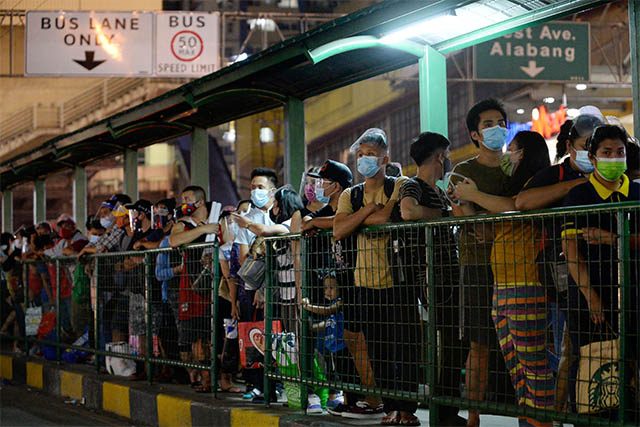
MANILA — The Philippines approved measures on Saturday to slow the spread of new, more infectious coronavirus variants, as President Rodrigo Duterte warned of a second lockdown should cases spike before the country gets its first vaccines in May.
Countries around the world have in recent days closed their borders to flights from Britain and South Africa, where more infectious variants have been detected.
Duterte extended an existing a ban on flights from Britain by two weeks to mid-January, and said the Philippines would impose travel curbs on countries with local community transmission of the UK variant.
With more than 469,000 infections and 9,067 deaths, the Philippines has the second highest number of COVID-19 cases and casualties in Southeast Asia, next to Indonesia.
Neither the UK nor the South African variant have been detected there yet, however.
In an emergency meeting with health experts and government officials, Duterte also ordered a 14-day quarantine for passengers who have come from or transited through Britain, and from countries where the more infectious COVID-19 variant first identified there was detected, including Hong Kong, Singapore, Australia and Japan.
Duterte pledged free vaccines for the country’s 108 million population, with shipments and inoculation to start in May.
“If (in the meantime) severity in numbers would demand that we take corrective measures immediately, then we should just have to go back to lockdown,” he said.
In mid-March, the Philippines imposed one of the world’s longest and toughest coronavirus lockdowns, which were gradually relaxed in June to allow a slow reopening of the economy.
The Philippines is in talks to acquire around 80 million doses of COVID-19 vaccines, including from Pfizer Inc, Moderna and Britain’s AstraZeneca, as well as Johnson & Johnson, India’s Novavax Inc, China’s Sinovac and Russia’s Gamaleya Institute.
—Reporting by Neil Jerome Morales; Editing by Andrew Heavens and John Stonestreet









